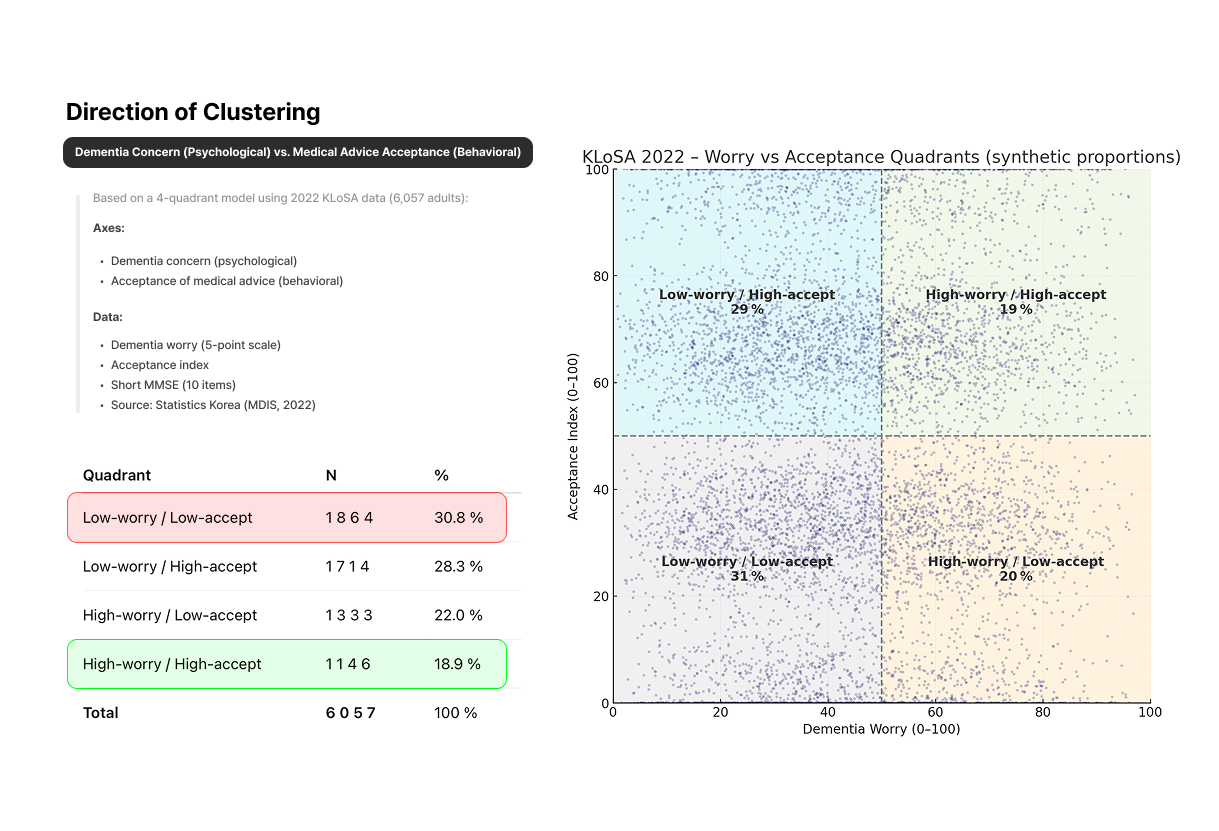02. User Analysis
Understanding AlzGuard Users
Following the initial product evaluation, the second week of work focused on analyzing user needs, motivations, and usage barriers based on observation, desk research, and heuristic review.
Although AlzGuard targets individuals with Mild Cognitive Impairment (MCI), users show considerable variation in health awareness, technology literacy, and willingness to engage with digital tools. To better understand these differences, we conducted clustering based on attitudinal and behavioral dimensions.
User Clustering Insight
Users were segmented along two axes:
- X-axis: Level of health-related worry (cognitive concern)
- Y-axis: Willingness to accept medical or digital interventions
This produced four representative clusters:
| Cognitive Concern / Acceptance Level | Low Acceptance ↓ | High Acceptance ↑ |
|---|---|---|
| High Concern ↑ | Avoidant Worried but hesitant | Proactive Adopter Health-motivated doer |
| Low Concern ↓ | Disengaged Low worry, low motivation | Functional Pragmatist Feature-driven user |
Cluster Descriptions
Avoidant
Highly concerned but lacks digital skills or guidance.
“I’m worried, but I don’t know where to start.”Proactive Adopter
Concerned and open to medical and digital advice; actively engages with health-related content.Functional Pragmatist
Less worried but open to using tools if they seem useful or recommended.Disengaged
Neither concerned nor motivated to use digital or wellness tools.
Persona Deep Dive: Jeonghee, Local Diner Owner in Goyang
Name: Junghee Kim (pseudonym)
Age: 55
Occupation: Snack shop owner, Goyang-si, South Korea
Digital Literacy: Low
Health Concern: Moderate concern due to family history, but limited proactive action
Pain Points
- Unfamiliar with digital interfaces and hesitant to use mobile devices
- Limited time to manage personal health due to business demands
Needs
- Clear, trustworthy explanation of test results
- Minimal-effort UI and interaction flow
- Entry triggers based on family recommendation or social context
Insight Though emotionally concerned due to family history of dementia, her actions are hindered by digital barriers and uncertainty about where to begin.
“I know I should do something because of my family history, but I really don’t know where to start.”
